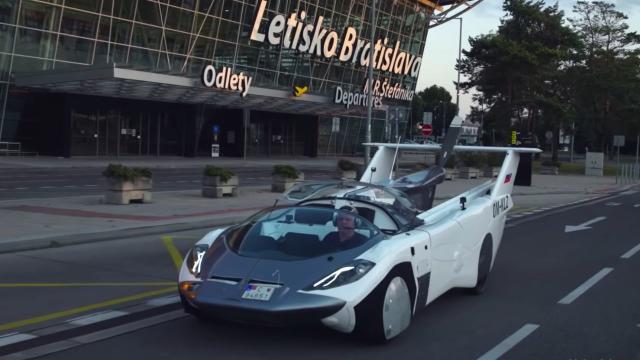In an unprecedented development that represents a significant advancement in the field of transportation innovation, a Chinese company has acquired the technology behind the European-designed AirCar. This purchase has the potential to completely transform China’s transportation industry and usher in a time when flying vehicles may become a reality sooner rather than later.
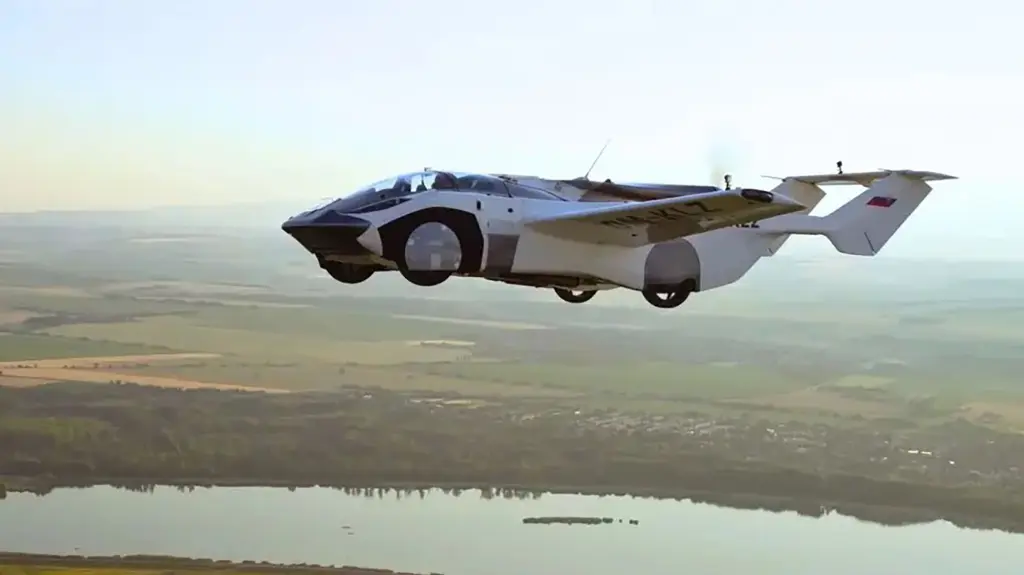
Presenting the AirCar: A Transportation Revolution
Professor Stefan Klein and Anton Zajac of Klein Vision created AirCar, which is more than just a theory; it’s a real step forward into the transportation of the future. With its elegant design, this two-passenger car can be converted from a road-ready car to a flying marvel in less than three minutes.
Acquisition from China: Advancing Innovation
With its headquarters located in Cangzhou, Hebei Jianxin Flying Car Technology Company has acquired the exclusive rights to produce and apply the innovative AirCar technology within a designated geographic region. This calculated action highlights China’s determination to lead the way in transport technology developments and redefine our understanding of urban mobility.
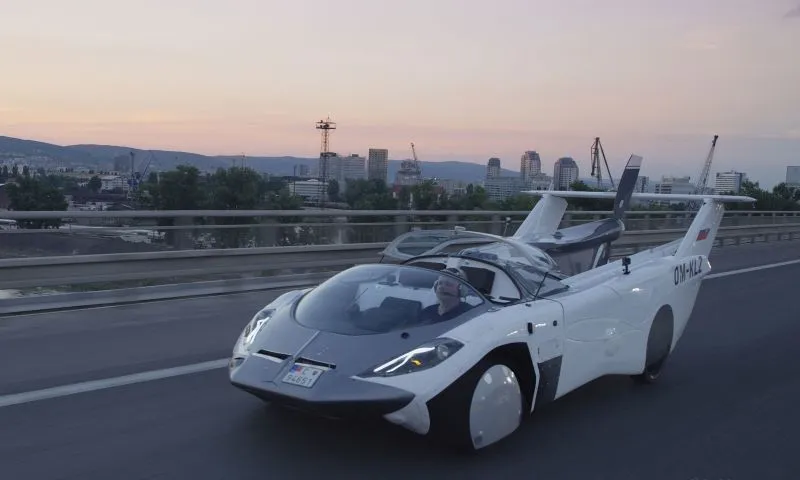
Unlocking China’s Potential for Flying Automobiles
The potential for this technology in China are endless with Hebei Jianxin leading the way. The introduction of flying vehicles has the potential to completely transform how people go from point A to point B, from relieving traffic congestion in busy cities to offering effective intercity transit options.
Smashing Boundaries: The Technological Wonder of AirCar
AirCar is a marvel of human creativity as well as engineering, featuring a BMW engine and the ability to run on petrol pump gasoline. It is a flexible means of transportation that can move between the ground and the air with ease thanks to its retractable wings, telescoping tail and fixed propeller.
Also read:- Cristiano Ronaldo adds a Ferrari Daytona SP3 worth $2 Million to his Automobile Collection
Innovative Safety Features
AirCar is being developed with safety as its top priority. With features like strict certification requirements and a ballistic parachute for emergencies, travellers may feel safe in the knowledge that their ride is both futuristic and secure.
Accepting the Future: China’s Plan for Autonomous Vehicles
One can sense China’s excitement over flying car technology. With its savvy purchases and successful test flights, the nation is leading the way in bringing the dream of aerial transportation to reality. A new era of mobility might soon be ushered in by AirCars taking to the skies over China, thanks to businesses like Hebei Jianxin paving the way.
Features of the Flying AirCar powered by BMW
Numerous cutting-edge features distinguish the BMW-powered AirCar as a unique dual-mode flying vehicle. With a powerful 1.6L BMW 300hp engine and batteries that can be quickly charged to 80% in only 15 minutes, this cutting-edge aircraft reaches a peak speed of over 300 km/h and an amazing 1,000 mile range.
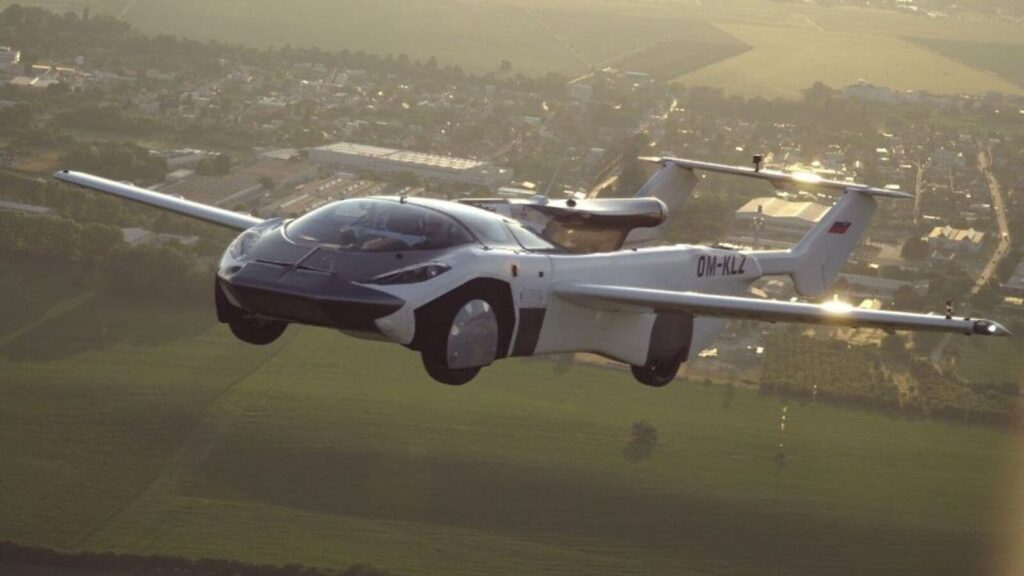
The AirCar uses distributed electric propulsion (DEP), which uses numerous motors and propellers to assure safety during flight and allows the vehicle to land safely even in the event of a motor or propeller failure. With its aerodynamic fuselage that improves lift characteristics and its ballistic parachute for emergency scenarios, the AirCar raises the bar for performance and safety in the small aircraft market.
Retractable wings increase longitudinal stability and take-off qualities of the AirCar, allowing for a seamless transition from the ground to the air. This further optimises the AirCar’s design. When the aircraft is in vehicle mode, its folding tail surfaces enable it to have a small profile, which makes it useful for regular driving.
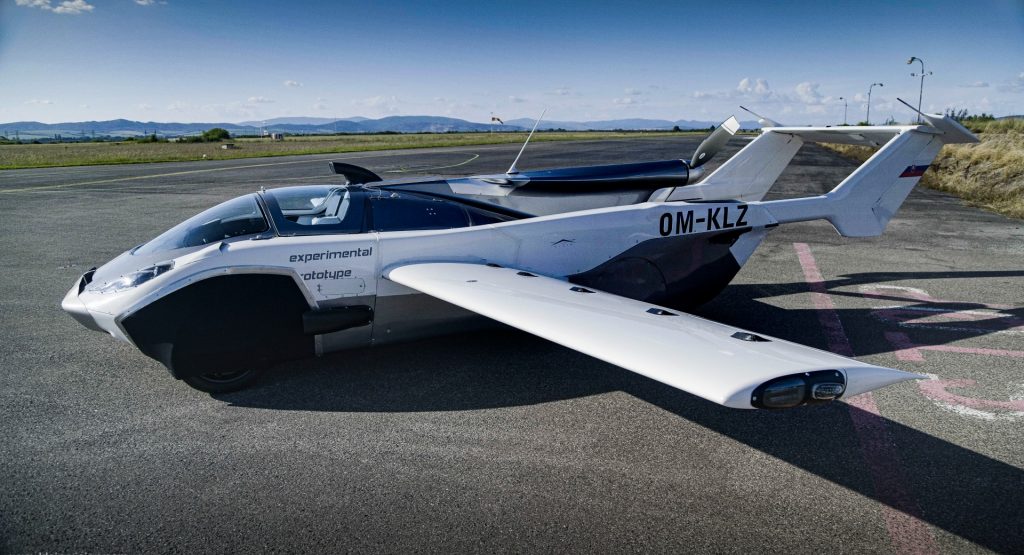
Furthermore, elements that produce downforce on the road, including lift pitch devices and spoilers, improve stability and handling. The BMW-powered AirCar is a harmonic fusion of cutting-edge technology, performance, and sustainability in the field of personal aviation transport, thanks to its ADEPT Airmotive aviation engine, which minimises environmental effect.
Conclusion
In conclusion, the AirCar powered by BMW is a revolutionary advancement in transportation technology. Its cutting-edge features, such as distributed electric propulsion and fast-charging batteries, expand the potential of personal aviation. The AirCar, which offers a combination of performance, sustainability, and utility unequalled by conventional vehicles, promises a future where flying automobiles are not just a fantasy but a genuine reality with its elegant design and cutting-edge safety systems.
Disclaimer: The information presented in this article is based on available sources and may not be 100% accurate.

